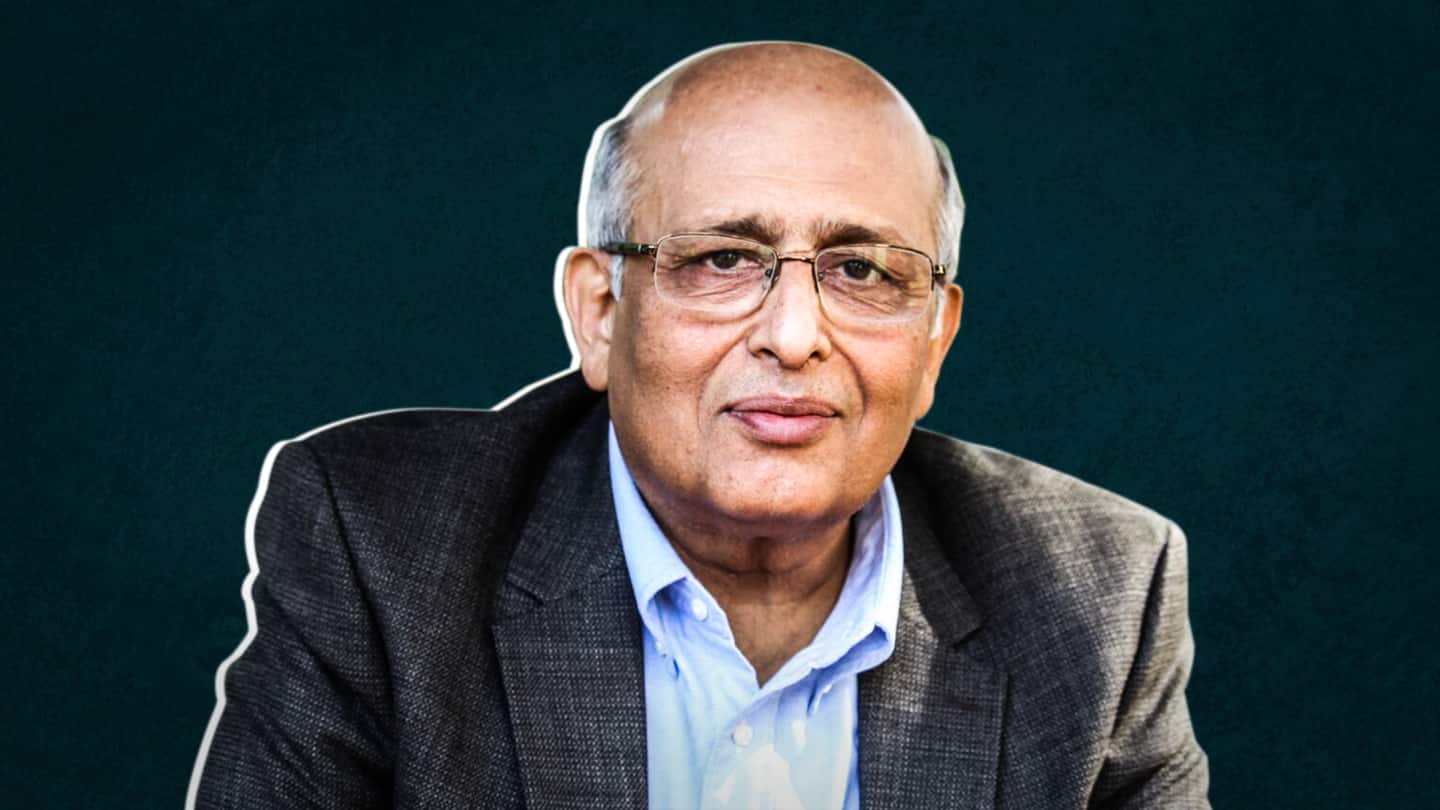
COVID-19: Virologist Shahid Jameel resigns from government's genome sequencing group
What's the story
Eminent virologist Dr. Shahid Jameel has resigned as the head of the Indian SARS-CoV-2 Genomics Consortium (INSACOG), the scientific advisory group coordinating the country's genome sequencing work.
Dr. Jameel—the Director of the Trivedi School of Biosciences at Ashoka University—has been critical of the government's handling of COVID-19, including lower testing, a slow vaccination drive, vaccine shortage, and the need for a bigger healthcare workforce.
Reason
Dr. Jameel offered no explanation for resignation
"I am not obliged to give a reason," Dr. Jameel told news agency Reuters, adding that he quit the panel on Friday.
Multiple scientists who are part of INSACOG said that Dr. Jameel's decision appeared to be sudden as he had not communicated reasons for his resignation to consortium members.
One of them, however, cited "government pressure" as a potential reason, The Hindu reported.
Information
Government established INSACOG last year
INSACOG is a group of 10 leading laboratories that was established by the Union Health Ministry in December last year. Since its inception, the body has carried out genomic sequencing and analysis of various SARS-CoV-2 genomic variants, and correlating epidemiological trends with the same.
Studies
'Over 800 scientists appealed to PM for access to data'
In a recent op-ed for The New York Times, Dr. Jameel wrote that over 800 scientists had appealed to the Prime Minister on April 30, demanding access to data that could help them further study, predict, and curb the virus.
Members of the INSACOG had also warned government officials in early March of a new coronavirus strain that is more contagious.
Findings
Government authorities didn't pay attention to findings, said virologist
The new variant, B.1.617, is believed to be instrumental in India's devastating second COVID-19 wave.
The findings were conveyed to a top official who reports directly to the PM.
When asked why the government did not respond more assertively to the findings, Dr. Jameel told Reuters that he was concerned that authorities did not pay enough attention to the evidence as they formulated policy.
'Resistance'
Indian scientists facing resistance to evidence-based policy-making: Dr. Jameel
In the NYT op-ed, Dr. Jameel wrote that India's scientists are facing "stubborn resistance to evidence-based policy-making."
He emphasized the need to increase testing and isolation, ramp up hospital beds by creating more temporary facilities, rope in retired doctors and nurses, and strengthen the supply chain for critical medicines and oxygen.
"The human cost we are enduring will leave a permanent scar," he wrote.
Supreme Court
Dr. Jameel had criticized SC's appointment of oxygen task force
Dr. Jameel had also criticized the Supreme Court's recent decision to appoint a task force to remedy India's oxygen shortage.
"This is really unfortunate...You decide who will get oxygen. It is really a sad day for us. These good doctors know about medicine, but what do they know about oxygen supply chain and logistics?" he was quoted as saying to The Indian Express.
Criticism
Government prematurely believed pandemic was over in January: Dr. Jameel
Dr. Jameel also said that government authorities had prematurely believed that the pandemic was over in January, and discontinued several temporary facilities that had been set up in previous months.
Several critics have slammed the Centre for its handling of the COVID-19 pandemic in the recent past, including permitting the organization of the Kumbh Mela attended by lakhs of people, and crowded election rallies.